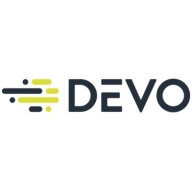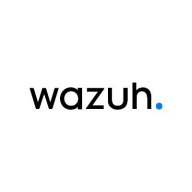

Devo and Wazuh compete in the security monitoring category, with Devo having a slight advantage due to its advanced data visualization and real-time analytics capabilities.
Features: Devo is known for its Activeboards, real-time analytics, and high-speed search capabilities. It supports multi-tenant architecture, ensuring data isolation while facilitating cross-tenant analytics. Additionally, it retains up to 400 days of hot data, which is crucial for long-term analysis. Wazuh stands out for easy integration with cloud and on-premises environments and its flexibility with open-source solutions. It features syscheck, supports PCI DSS compliance, and offers integration with various third-party tools for comprehensive security monitoring.
Room for Improvement: Devo users face challenges with its browser-based design, which can lead to performance issues during extensive searches, and limited customization options in Activeboards’ visuals. There are also limitations in parsing diverse log types and concerns about pricing based on parsed metadata. Wazuh lacks native threat intelligence and comprehensive alert templates, and users note scalability issues in large environments. The absence of robust threat intelligence and certain enterprise features are opportunities for enhancement.
Ease of Deployment and Customer Service: Devo supports both public and hybrid cloud deployments with a focus on customer support, though onboarding assistance could improve. Wazuh offers hybrid and on-premises deployments with average technical support, and while community support helps its open-source model, direct assistance can be more efficient.
Pricing and ROI: Devo uses a per-gigabyte ingestion pricing model, including 400-day hot data retention, which some find competitive despite potential metadata cost surprises. The ROI is seen in time savings for analysis and remediation, though it is generally pricier than open-source offerings. Wazuh offers cost-effectiveness as an open-source solution, with costs related to infrastructure and optional support services, making it a budget-friendly choice depending on enterprise needs and scalability.
| Product | Market Share (%) |
|---|---|
| Wazuh | 10.2% |
| Devo | 1.1% |
| Other | 88.7% |


| Company Size | Count |
|---|---|
| Small Business | 7 |
| Midsize Enterprise | 4 |
| Large Enterprise | 11 |
| Company Size | Count |
|---|---|
| Small Business | 26 |
| Midsize Enterprise | 15 |
| Large Enterprise | 8 |
Devo is the only cloud-native logging and security analytics platform that releases the full potential of all your data to empower bold, confident action when it matters most. Only the Devo platform delivers the powerful combination of real-time visibility, high-performance analytics, scalability, multitenancy, and low TCO crucial for monitoring and securing business operations as enterprises accelerate their shift to the cloud.
Wazuh offers comprehensive security features like MITRE ATT&CK correlation, log monitoring, and cloud-native infrastructure. It ensures compliance and provides intrusion detection with high scalability and open-source flexibility, ideal for businesses seeking robust SIEM capabilities.
Wazuh stands out in security information and event management by providing efficient log aggregation, vulnerability scanning, and event correlation against MITRE ATT&CK. Its capability to integrate seamlessly with environments, manage compliance, and monitor files makes it suitable for cloud-native infrastructures and financial sectors. Despite its technical support needing enhancement and opportunities for improving AI integration and threat intelligence, its open-source nature and cost-effectiveness make it appealing. Users can leverage custom dashboards powered by Elasticsearch for precise data analysis, even though there is a desire for a more user-friendly interface and better enterprise solution integration. Deployment may be complex, but its features contribute significantly to fortified security postures.
What are the essential features of Wazuh?Industries like finance and cloud infrastructure heavily utilize Wazuh for its security strengths. By monitoring endpoints and ensuring compliance with frameworks, companies can improve security posture and swiftly detect anomalies. The platform's focus on event correlation and alerts for security incidents is particularly beneficial.
We monitor all Security Information and Event Management (SIEM) reviews to prevent fraudulent reviews and keep review quality high. We do not post reviews by company employees or direct competitors. We validate each review for authenticity via cross-reference with LinkedIn, and personal follow-up with the reviewer when necessary.